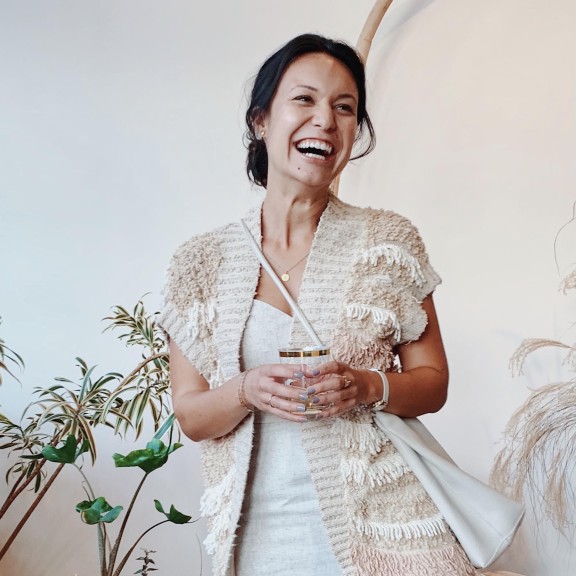Taylor Chambers
Returning to strengthen California schools’ ability to support students’ mental health and well-being
The National Center for Youth Law has a long history of alumni continuing to pursue passionate careers to advance justice for children and youth. Taylor Chambers is among those who returned to the organization — following her graduation from law school — to work alongside youth to create a world in which every child thrives and has a full and fair opportunity to achieve the future they envision for themselves.
“One of my big goals for my fellowship was to contribute to the team’s efforts to ensure all of our work, reports, and policy recommendations are informed and driven by youth.”
Q: How did you hear about the National Center for Youth Law, and what was your first role here?
A: My senior year of college, I was in a philanthropy class that was tasked with giving to local Bay Area organizations. My small group ended up giving $5,000 to the National Center for Youth Law to support Bill Grimm and Anna Johnson’s psychotropic medications campaign, the goal of which was to end the overmedication of young people in foster care. Bill and Anna were so brilliant and kind, and left a big impression on me. My conversation with them affirmed that I wanted to work at the National Center for Youth Law. I was so excited to see an opening on the Compassionate Education Systems team that allowed me to explore systems work with young folks in education the following year.
I worked as the Program Coordinator. I supported the team’s communication, development, and programmatic work, and was jointly supervised by Michelle Francois and Rachel Velcoff-Hults.
Q: How did your time as Program Coordinator influence your time in law school and ultimate career goals?
A: I knew that I wanted to go to law school and be involved in youth and education advocacy. Being at the National Center for Youth Law made me excited about the possibility of being a legal advocate. That was my whole guiding principle when I was in law school — I always pursued opportunities to be the best youth advocate that I could be.
I was especially fortunate to be exposed to the National Center for Youth Law’s wide breadth of strategies, specifically our systems policy legal work, because that’s not typical. In law school, I still did direct service but knew that systems work was a real career option and something that I enjoyed. So, in addition to direct service, I also sought out opportunities to use data, draft reports, and craft policy strategies.
I also found incredible mentors here at the National Center for Youth Law who guided me in my application to and time at law school. The mentors I gained are a crucial reason I chose to return to the National Center for Youth Law. When I was selecting where to go, having the level of support – the exceptional training and supervision – that I had at the National Center for Youth Law was important. And I’ve felt it since I’ve come back. It’s been great to reconnect with old mentors and make connections with new ones.
Q: How do you center youth in your work?
A: As part of my fellowship project to strengthen California schools’ ability to support children’s mental health needs through a policy- and practice-based approach, I just wrapped up a round of virtual and in-person focus groups with young folks ages 13-18. Youth know so much about mental health and well-being, and the adults have a lot to learn from them. One of my big goals for my fellowship was to contribute to the team’s efforts to ensure all of our work, reports, and policy recommendations are informed and driven by youth. Oftentimes there’s a gap between what decision makers or policymakers might think would be helpful to support youth and what youth actually want and need. So the hope of these focus groups was to really help bridge that gap.
I’m happy to say that my team and I engaged with more than 90 students from across the state and we’re so grateful for the time and expertise that they shared with us about mental health and well-being. We’re currently working on creating a “Youth Insights Report” that summarizes and shares what young people told us. We’re also about to host a youth art contest to find some awesome youth art that expresses how young people feel about mental health and well-being to feature in the report. Stay tuned for that report to come out in early fall 2023.
I feel lucky to have a team that is so committed to dedicating time and resources to figuring out how we can center youth in our work and engage with young folks in a positive way. The focus groups required a lot of thought about issues like obtaining consent, protecting student confidentiality and privacy and equitably compensating youth for their expertise. I hope that the lessons we learned from hosting this round of focus groups can help inform future youth engagement efforts at the National Center for Youth Law, and ultimately ensure that young people have what they really need to thrive in their school communities and beyond.



